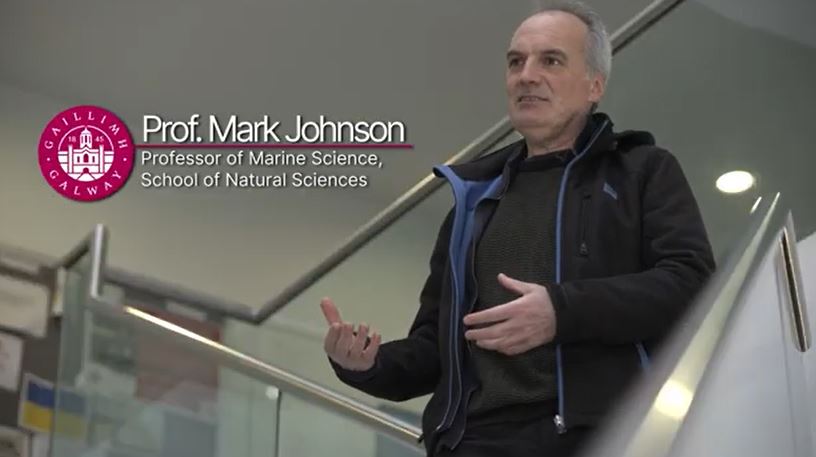-
Courses

Courses
Choosing a course is one of the most important decisions you'll ever make! View our courses and see what our students and lecturers have to say about the courses you are interested in at the links below.
-
University Life

University Life
Each year more than 4,000 choose University of Galway as their University of choice. Find out what life at University of Galway is all about here.
-
About University of Galway

About University of Galway
Since 1845, University of Galway has been sharing the highest quality teaching and research with Ireland and the world. Find out what makes our University so special – from our distinguished history to the latest news and campus developments.
-
Colleges & Schools

Colleges & Schools
University of Galway has earned international recognition as a research-led university with a commitment to top quality teaching across a range of key areas of expertise.
-
Research & Innovation

Research & Innovation
University of Galway’s vibrant research community take on some of the most pressing challenges of our times.
-
Business & Industry

Guiding Breakthrough Research at University of Galway
We explore and facilitate commercial opportunities for the research community at University of Galway, as well as facilitating industry partnership.
-
Alumni & Friends

Alumni & Friends
There are 128,000 University of Galway alumni worldwide. Stay connected to your alumni community! Join our social networks and update your details online.
-
Community Engagement

Community Engagement
At University of Galway, we believe that the best learning takes place when you apply what you learn in a real world context. That's why many of our courses include work placements or community projects.
Bachelor of Science (Marine Science)
Course Overview
Marine Science encompasses the study of marine life and environments, how they are formed and evolve, and how they are affected by human activity. Topics covered in this programme include marine biology, earth science, chemistry and experimental physics, mathematics, statistics, oceanography, meteorology, botany, geology and microbiology.
The degree in Marine Science is a four-year degree leading to a BSc (Hons). At the end of the degree, you will have improved your knowledge about the marine environment and will have developed your thinking and practical and personal skills, enabling you to undergo further academic training in a wide variety of scientific disciplines or begin your career. Marine Science is a broad area and the programme aims to help you find what speciality you prefer to study by introducing the subject in a general way at first and allowing you to follow your particular interests later on.
At present, University of Galway is the only Irish university offering this degree programme and it now has the highest concentration of marine scientists of any institution in Ireland. Research ranges from fundamental understanding of the marine ecosystem to very applied activities involving close co-operation with industry and state agencies. The 3,000 square metre Martin Ryan Marine Science Institute houses most of the teaching and research activity in Marine Sciences at the university. MRI Carna carries out applied research in Carna, County Galway.
See programme brochure below.
Applications and Selections
Who Teaches this Course
Requirements and Assessment
Key Facts
Entry Requirements
Minimum Grade H5 in two subjects and passes in four other subjects at O6/H7 level in the Leaving Certificate, including Irish, English, Mathematics, a laboratory science subject (i.e, Chemistry, Physics, Biology, Physics with Chemistry (joint), Computer Science or Agricultural Science) and any two other subjects recognised for entry purposes.
Additional Requirements
Recognition of Prior Learning (RPL)
Duration
4 years
Next start date
September 2025
A Level Grades (2024)
universityofgalway.ie/alevels
Average intake
33
QQI/FET FETAC Entry Routes
Closing Date
NFQ level
Mode of study
ECTS weighting
Award
CAO
GY310
Course code
Course Outline
YEAR ONE
This year is a foundation year to ensure that all students have the background needed for more advanced material. The staff teaching science subjects (Biology, Chemistry, Physics) will not assume that all the class have studied the subject in their school-leaving qualification. There are additional supports to help students like SUMS - the mathematics support centre at University of Galway.
YEAR TWO
Students are able to select from a range of appropriate science modules, alongside core marine material in modules like Fundamentals in Aquatic Plant Science, Introduction to Ocean Science and Invertebrate Zoology (many invertebrate groups are exclusively or mostly marine).
YEAR THREE
This year continues the balance of core (e.g., Marine Habitat) and optional modules. This is also the year where it is possible to participate in an Erasmus exchange or apply for one of the College of Science and Engineering’s study abroad opportunities).
YEAR FOUR
The 4th year includes a major research project carried out with an academic supervisor. This helps develop deeper knowledge alongside skills in project management and data evaluation. Also in this year there is a module (Field Skills in Marine Science) structured around experience on one of the Marine Institute’s research vessels. There is a free choice of optional modules, including a module in ocean politics.
See course outline for GY310 Marine Science here
[an error occurred while processing this directive]
Further Education
Honours BSc Marine Science graduates can pursue higher degrees in a wide range of related disciplines. Recent examples include PhD projects in Sweden, Austraila and Ireland, with M.Sc. courses taken across Europe.
Why Choose This Course?
Career Opportunities
We have graduates working in marine-related roles in the Irish public and private sector. Our graduates have also gone on to study and work overseas. A final thing to remember: Although you will always have studied marine science, the skills from a degree are transferrable, allowing access to many different types of graduate careers.
Who’s Suited to This Course
Learning Outcomes
Transferable Skills Employers Value
Work Placement
Study Abroad
See Erasmus opportunities in Oviedo, Spain. Marine Science students also go to Hong Kong with the HKUST exchange scheme here.
Related Student Organisations
Course Fees
Fees: EU
Fees: Tuition
Fees: Student Contribution
Fees: Student levy
Fees: Non EU
EU Fees are comprised of Tuition + Student Contribution Charge + Student Levy* €140. *Payable by all students and is not covered by SUSI. Further detail here.
For 25/26 entrants, where the course duration is greater than 1 year, there is an inflationary increase approved of 3.4% per annum for continuing years fees**.
**Excludes Full-Time EU Undergraduate fees. These are fixed and do not change.
Find out More
Professor Mark Johnson
Programme Director
School of Natural Sciences
T: 353 (0)91 492126
E: marinescience@universityofgalway.ie
What Our Students Say

Alina Madita Wieczorek | 4th Year Marine Science
I moved from Germany to Galway to study Marine Science as I wanted to study in English and as close to the Atlantic as possible. The first year of the course focused on giving the same background knowledge to all students. During the second and third year I gained in-depth knowledge in many different areas of Marine Science as the course is truly multidisciplinary. I more and more realise now that this is one of the more important if not the most important aspect of my studies in Univerisity of Galway as it enables me to link up topics from different areas such as how ocean physics influence the biology of our oceans. My favourite part of the degree was the research project in year four where the lecturers hand over to you. In this period I picked up many valuable skills, which are of great help to me now. At the moment I am doing a bursary in the Marine Institute. I hope in the future to do research around marine environmental issues and acquire a PhD in this area.









-184x300.JPG)











